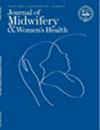Midwives’ and Obstetric Physicians’ Practices Related to Pregnancy Nutrition Counseling: A Scoping Review
Abstract
Introduction
Dietary intake during pregnancy impacts short- and long-term maternal and fetal health outcomes. Dietary habits are highly individualized and influenced by contextual factors and social determinants of health within each person's lived environment. Midwives and other health care providers are well positioned to facilitate nutrition conversations and interventions with patients related to recommendations and modifications before and during pregnancy. This scoping review synthesizes the literature on perinatal care providers’ attitudes and practices related to antenatal nutrition counseling.
Methods
An electronic database literature search was conducted in March 2023 using the following inclusion criteria: English language, published between 1990 and 2023, completed in high-income countries, and evaluated provider practices related to educating pregnancy patients on nutrition. Exclusion criteria included comparison or interventional studies as well as those focused on patient perspectives, specialty diets, comorbidities, or pregnancy complications. Thematic analysis was completed to identify common themes and subthemes across studies related to perinatal care providers’ perspectives of pregnancy nutrition.
Results
Thirty-six articles were included in the final review. Although providers acknowledged the importance of nutrition for pregnancy outcomes, few reported being able to cover the topic in-depth during antenatal visits. Counseling was usually generalized, limited in scope, and lacked consideration of patient-specific contextual factors such as dietary restrictions, preferences, or access to resources needed to follow recommendations. Provider barriers to comprehensive nutrition counseling included lack of training and time during clinic visits and limited availability of guidelines.
Discussion
Multiple gaps in current pregnancy nutrition counseling practices exist. Despite nutrition being viewed by perinatal care providers as an important part of pregnancy, multiple barriers lead to it being overlooked during patient-provider interactions. Contextual factors for both providers and patients contribute to failure of current interventions to consistently and significantly impact dietary habits of pregnant people.

 求助内容:
求助内容: 应助结果提醒方式:
应助结果提醒方式:


